Circular economy
We’re rethinking waste, turning what we have into what we need. From infrastructure to everyday gear, we’re finding smart ways to reuse, repurpose and regenerate to avoid unnecessary consumption.
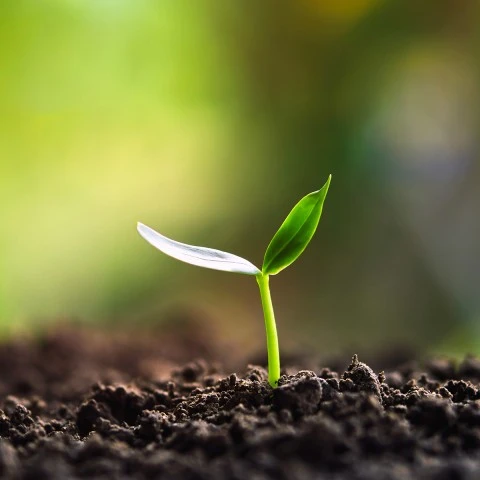
We’re rethinking waste, turning what we have into what we need. From infrastructure to everyday gear, we’re finding smart ways to reuse, repurpose and regenerate to avoid unnecessary consumption.
The circular economy is a system where materials never become waste and nature is regenerated. In a circular economy, products and materials are kept in circulation through careful design and processes like maintenance, reuse, refurbishment, remanufacturing, recycling and composting.
Meridian is committed to being a sector leader to find circular solutions for the materials we use.
As a large generator, developer and retailer of energy, we create waste from the operation and maintenance of our generation assets, the construction of new renewable assets and in our corporate offices.
You can learn more about Meridian's Integrated Waste Management Programme below:
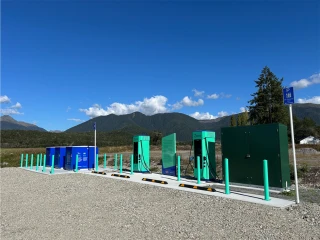
At Springs Junction, we’ve taken a fresh approach to EV infrastructure. The site features a Battery Energy Storage System (BESS) which uses repurposed Nissan Leaf batteries, giving retired EV components a second life. It’s a smart, sustainable solution that shows how circular thinking can power the future.
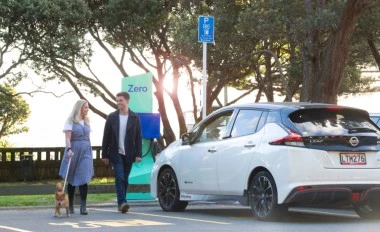
Our public EV charging network is built for longevity and low environmental impact. All chargers are designed to be repairable, reusable and recyclable. Through preventative maintenance, we catch issues early, reducing waste and extending the life of each unit. It’s a scalable solution that reflects our commitment to thoughtful infrastructure design.
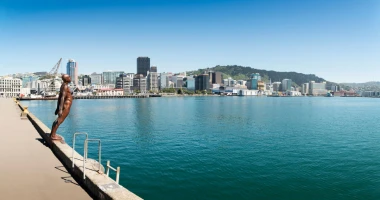
When we set out to design our Wellington office, we wanted it to reflect the way we think about the planet - not just in what it looks like, but in how it was made. Materials were salvaged, repurposed and thoughtfully integrated into the space, giving new life to what might otherwise have gone to waste.
It’s more than just a building, it’s a working example of how smart design can reduce impact and tell a story. Every detail, from the walls to the furniture, speaks to our commitment to doing things differently.
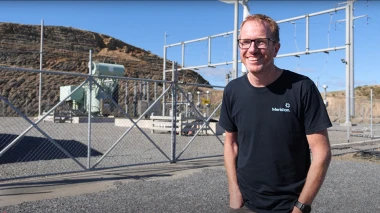
What started as an unexpected failure on a key piece of machinery ended as one of the most ambitious and successful recycling projects Meridian has ever undertaken. A failure in one of two transformers at Wellington’s West Wind Farm in May 2023 left the team with just one working transformer and scratching their heads about what to do with the other one.
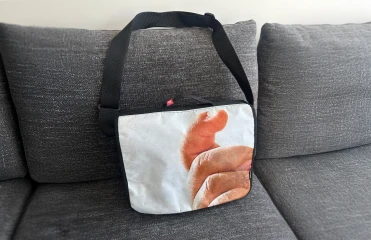
When our marketing billboards reached the end of their run, we saw an opportunity to do something different. Instead of sending them to landfill, we transformed the tough, weather-worn skins into something useful, durable bags for our team. Each one was unique, shaped by the colours, textures and typography of the original designs. No two bags were the same, and that was the point: a reminder that reuse can be creative, practical and personal. It’s just one way we’re finding new value in old materials.
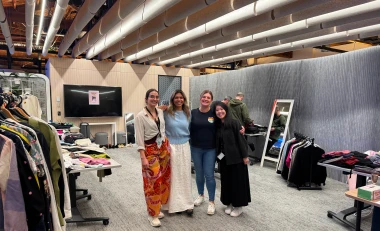
Sustainability starts with the everyday choices we make and sometimes, that’s as simple as what we wear. Through our “Grab and Go” initiative, employees bring in old branded gear to be reused, repurposed, or passed on. It’s a practical way to keep materials in use and out of landfill.
We’ve also added a clothes swap to the mix, giving our people the chance to refresh their wardrobes without buying new. It’s become more than just a sustainability initiative - it’s a way to connect, share and rethink how we value the things we already have.
Creating a more sustainable future means working together and that includes finding smart ways to reuse and repurpose resources at home. Whether you're reusing, repairing, or reimagining what you already have, small changes can make a big impact.
Every action counts. By making thoughtful choices at home, you too can help build a future where resources are valued, waste is reduced and sustainability is part of everyday life.
Tackling Zero is Meridian’s quarterly newsletter for people whose roles or studies are focused on sustainability, or for whom this is an area of interest. Each issue will offer Meridian’s insights into a topical sustainability issue, as well as stories on how we, our customers and supply chain partners are tackling sustainability. It also includes links to recent Meridian disclosures such as new policies and reports.